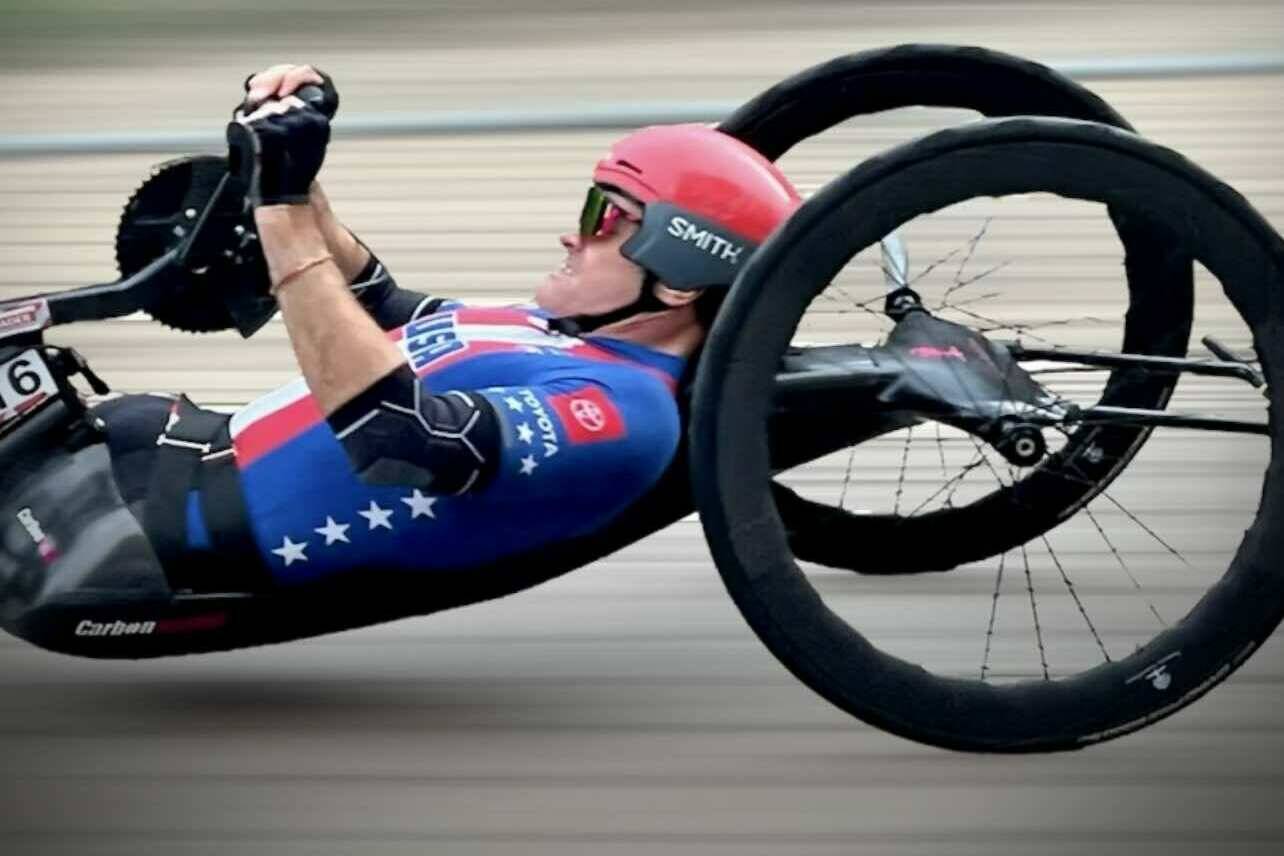Travis Gaertner is used to pushing himself to the limit, which is why he is finding himself in Paris later this month to participate in the Paralympic cycling races.
But this isn’t even the first time he’s competed against the best of the best in the world’s most famous games.
The Enumclaw local had dreams of competing in the Paralympics ever since he was in high school, where he excelled at basketball.
“Once I figured out what was possible with this sport, and how I could find ways stretch my limits and redefine myself, I fell in love with it,” he said. “That’s when I said, I want to go to the United States to play basketball.”
But first, he competed on Team Canada at both the 2000 Paralympic Games in Sydney, Australia, when he was 20 and the 2004 games in Athens, Greece. His team took the gold both times.
Two decades later, he’s getting back into the game.
“It feels like a culmination of work and sacrifice that is great to see rewarded,” Gaertner said. “… [There’s been] a lot of support from my family, a lot of support from my sponsors, a lot of support from my coaches, a lot of support from my employer. There are so many people that have come around me with this goal of mine, and it just feels like we did it.”
The path here wasn’t easy — not only is he one of the older athletes at 44 years old, but he was introduced to a bike when he was an adult, long after most folks have their first experiences.
But “speed was always my game in wheelchair basketball,” so that easily translated to the new sport.
Training for these competitions isn’t just brutal — it takes over his whole life.
“The time that it takes for me to train, that means less time at work and less time with the family,” he said. “I’ve got to live a certain lifestyle that’s conducive to maximum performance. There’s time where you kind of wish, ‘I wish I didn’t have to train today,’ or ‘I wish we can go on this vacation in this way.’ But no, we’ve got to bring Travis’ bike with [us].”
There’s also the financial strain. While all of his money from work supports his family — wife Laura and kids June, Jasper and Ezra — he’s got to find more cash to keep his fully-custom bike in tip-top working condition. While he has sponsors that help, he often has to crowdfund to make up the difference.
But as he said, these sacrifices paid off with bronze medals at the UCI Para-cycling Road World Championships in 1998, 2002, 2019, and 2023 events.
When he was named an alternate for the 2020 Paralympics, he wondered if it was time to retire.
But he felt God wanted him to continue on.
“I’m a very faith-based athlete,” he said. “… I believe that He’s given us all different gifts, and we’re all to maximize the gifts that He’s given us, and use them for His glory.”
With his family, community, and religion at his back, Gaetner finally earned that Team U.S.A. spot, and will be racing in Paris on Aug. 28.
He’ll be competing in three events: the time trial, the group race, and the relay — the last is where he’s put most of his energy and where he has the highest hopes of medaling.
COMMUNITY SUPPORT
Gaertner is going to the 2024 Paralympics — there’s no doubt there.
But how well he does is affected by the equipment he’s working with, which is where his community can come in to help.
“I have sponsors, but without a GoFundMe to close the gap… that’s a big part” of his performance, he said, noting that disabled sports have a higher financial buy-in than abled sports. “There’s still a gap to be filled.”
You can donate to Gaertner’s GoFundMe at gofundme.com/f/road-to-the-paralympics-paris-2024.
You can also get updates about Gaertner at his Instagram page at instagram.com/travis.gaertner/.
MORE INFO
The Paris Games, put on by the International Paralympic Committee, will be staged Aug. 28 through Sept. 8.
Approximately 4,400 athletes will travel from all corners of the globe to compete in 549 medal events spanning 22 individual sports.
Competition will take place at iconic Paris landmarks like the Eiffel Tower, the Chateau de Versailles and the Grand Palais.
For the uninitiated, there are two disciplines in paracycling: road and track. When road paracycling made its Paralympics debut in 1984, a total of 22 athletes competed in seven events. By the 2000 Games in Sydney there were more than 200 competitors.
There are five sport classes for athletes who can use a standard bicycle, C1-C5, with the numbers indicating the different impact of the impairment and activity limitation.
Handcycling (where Gaertner competes) also has five classes, H1-H5. The two classes in tricycle races are for athletes with balance co-ordination impairments.
Cyclists with a vision impairment race tandem with a sighted pilot in front.


